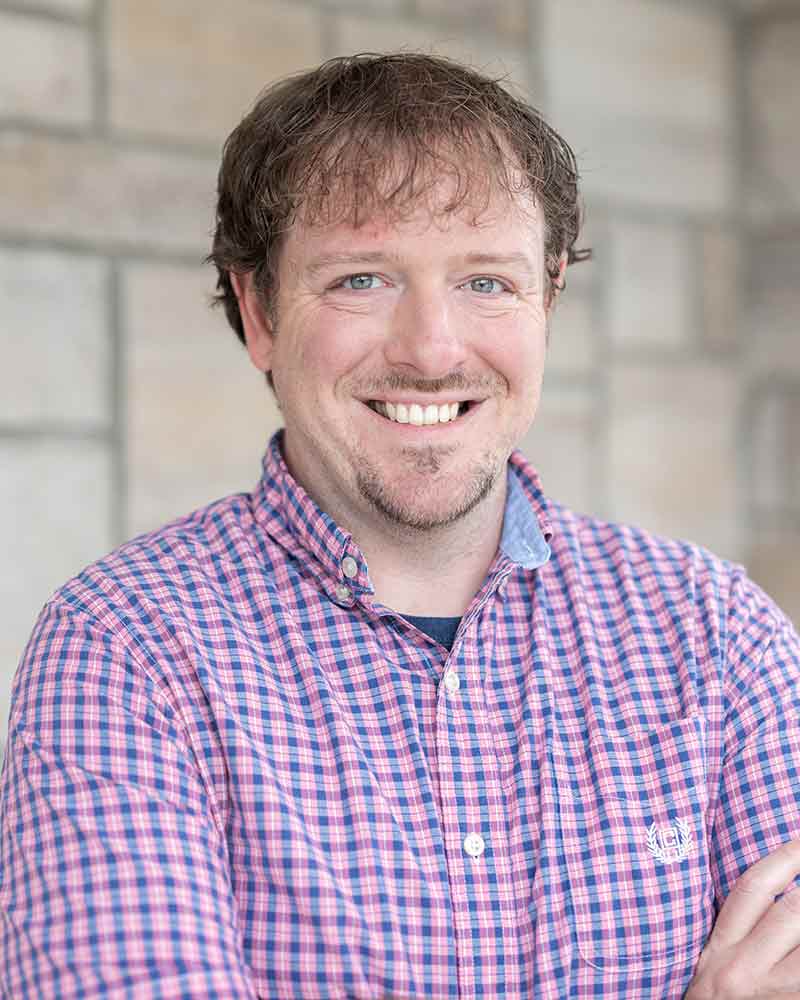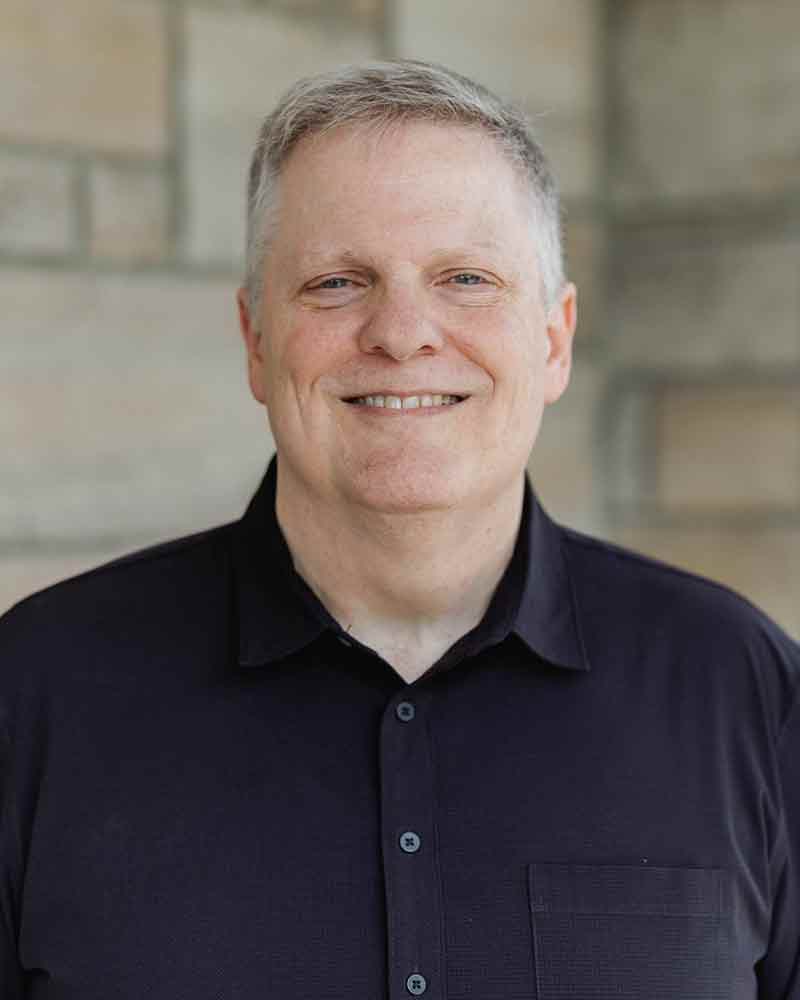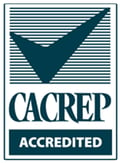Clinical Mental Health Counseling (M.A.)
The Master of Arts in clinical mental health counseling is accredited by The Council for Accreditation of Counseling and Related Educational Programs (CACREP). This program prepares students for licensure as a professional counselor (LPC-MHSP) in the state of Tennessee.
Want More Info?
Program Benefits
- Be part of a seasoned program with a strong reputation across Middle Tennessee.
- Utilize a built-in support system and complete your degree alongside others who are working toward similar goals through Trevecca’s cohort model.
- Learn in a collaborative environment with small class sizes.
- Learn from faculty who possess the highest degrees in their fields and have relevant and valuable real-world experience.
What to Expect
Whether your career goals include starting your own private practice, serving in an agency or counseling center or leading as a counseling administrator, Trevecca’s Master of Arts in clinical mental health counseling can help you reach your goals. Our 60-hour program focuses on the development of your professional counselor identity. In the face-to-face class format, you’ll build a network of strong relationships with faculty and other students that extends beyond graduation. You’ll also have the opportunity to complete an internship at one of our 100+ associated agencies or centers, providing you with hands-on learning and real-time application in the field.
Why Choose Trevecca?
 Founded in 1901 and a leader in online education for more than two decades, Trevecca helps students discover and pursue an individual calling by providing innovative instruction; cultivating a supportive, Christ-centered community; and establishing relationships that open doors.
Founded in 1901 and a leader in online education for more than two decades, Trevecca helps students discover and pursue an individual calling by providing innovative instruction; cultivating a supportive, Christ-centered community; and establishing relationships that open doors.
Recognized nationally and locally for academic quality, Trevecca has earned a reputation for providing the world with servant leaders, problem solvers and difference makers. Trevecca’s holistic approach to education encompasses intellectual, social, emotional, physical and spiritual growth.
Course Descriptions
Get details on all the courses you’ll complete as you work toward this degree at Trevecca.
Read MoreHere’s a look at the approximate tuition rates you could expect for this program at Trevecca, including the cost per credit hour and the total tuition expense for the full degree program. Please note that rates and fees are subject to change.
Here’s a look at the approximate tuition rates you could expect for this program at Trevecca, including the cost per credit hour and the total tuition expense for the full degree program. Please note that rates and fees are subject to change.
Cost/Credit Hour$775 |
Hours60 |
Tuition Cost*$46,500 |
*Practicum/Internship (Tevera): $220
*Practicum Extension Fee: $250
*Student Resource Fee: $150/course
*Additional fees for textbooks and required materials estimated at $150
- Admission Requirements
- Resources
Application Information
- Cycles of new students begin three times during the year: fall, spring, and summer.
- Fall semester, apply by June 1, two new groups are taken (a Tuesday class schedule and a Saturday class schedule)
- Spring semester, apply by October 1, one new group is taken (a Saturday class schedule)
- Summer semester, apply February 15, one new group is taken (a Thursday class schedule)
- Applicants are encouraged to meet semester deadline requirements.
Minimum requirements: 2.7 GPA and 290 GRE. If an applicant is below the minimum for one of the requirements, s/he may be considered under our conditional admission policy.
Application Documents
Fill out online application
Reference Assessment Form (2 required)
Immunization Information
Application Checklist
- Complete the online application (it's free!).
Need help applying? Read the step-by-step instructions here! - Official transcript(s): Submitted directly from a regionally accredited college/university via fax/mail/email showing the bachelor’s degree has been conferred.
Trevecca Nazarene University
Attn: Graduate Admissions
333 Murfreesboro Road
Nashville, TN 37210
FAX to 1-888-517-0123
EMAIL to GRAEadmissions@trevecca.edu - Official test score report for the Graduate Record Examination (GRE) with a minimum score of 290 (combined verbal and quantitative). Typically, GRE will be waived if applicant already holds a MA degree, or has an undergraduate cumulative GPA of 3.0 or higher. Applicants with an undergraduate GPA of 3.0 or higher, at times, may still be asked to submit the GRE or an additional writing sample.
- Two (2) completed reference assessment forms (available here) must be professional and/or academic. Applicants will need to send reference form link to their recommenders.
Admission Deadlines (per semester)
- Fall: May 1
- Spring: October 1
- Summer: February 15
- All completed application items must be received by the deadline in order to be considered for the next step in the application process.
Have questions? Contact the enrollment counselor with your questions at hambrefe@trevecca.edu or 615-248-1546.
Our Faculty
-

Chelsea Alexander
Assistant Professor, Graduate Counseling
Chelsea Alexander is a licensed professional counselor and mental health service provider (LPC/MHSP) in the state of TN. She received her masters of science degree in clinical mental health counseling from Southeastern Louisiana University in ...Read Full Bio -

Julie Barnes
Associate Professor, Graduate Counseling
Read Full BioJulie completed her undergraduate studies at Cumberland University and her graduate studies at Trevecca. Prior to becoming full-time in the Graduate Counseling Program, she served as an adjunct professor. She is a ...
-

Donald Harvey
Professor, Graduate Counseling
Read Full BioDonald Harvey, Ph.D., LPC-MHSP is professor of graduate counseling. While at Trevecca, he established the master's degree program in Marriage and Family Therapy and co-created the CACREP Accredited Ph.D. program in clinical counseling, teaching ...
-

Sara Hopkins
Associate Professor, Graduate Counseling
Read Full BioSara earned her Master’s in Marriage and Family Therapy from Trevecca in 2005 and finished the Ph.D. in Counselor Education program in August 2011. Along with teaching, Dr. Hopkins maintains a private practice in ...
-

Kevin Hull
Assistant Professor, Graduate Counseling
-

Aimee Isenberg
Associate Professor, Graduate Counseling
Read Full BioAimee completed her undergraduate and doctoral studies at Trevecca. She served as an adjunct professor for several years before joining the graduate counseling program as a full- time faculty member. She is a ...
-

Donald Jackson
Associate Professor, Graduate Counseling
Read Full BioDonny Jackson, Ph.D., LMFT is an associate professor of Graduate Counseling. A two-time graduate of Trevecca, Donny brings 30+ years of experience in the music industry to his private practice, where he works ...
-

Susan Lahey
Program Director, Professor, Graduate Counseling
Read Full BioSusan Lahey, Ph.D. is the director of graduate counseling at Trevecca, where she has served as a full-time faculty member since 2007 and as director since 2017. She has provided leadership as the doctoral program ...
-

Peter Wilson
Professor, Graduate Counseling
Read Full BioPeter Wilson, Ed.D. has served at Trevecca for 29 years. Currently a full-time professor, he previously served as director of the graduate counseling program for many years. He received a Bachelor of Arts degree ...
Course Descriptions
Get details on all the courses you’ll complete as you work toward this degree at Trevecca.
Helping Relationships
CSL 5260
Lifespan Development
CSL 5220
Looks at the survey of research throughout the entire lifespan including findings in the areas of physical, emotional, cognitive, and interpersonal growth and development.
Group Therapy and Process
CSL 5430
Examines group techniques and application to counseling settings. Various ethnic and socioeconomic groups will be emphasized.
Advanced Abnormal Psychology
CSL 5240
This course is designed to provide an understanding of patterns of abnormal behavior including anxiety, depression, schizophrenia, and personality disorders. This course covers the domains of psychopathology as it is represented in the American Psychiatric Association’s Diagnostic and Statistical Manual of Mental Disorders.
Counseling Diverse Populations
CSL 5250
An overview of counseling strategies useful with varied populations. Counseling skills helpful with clients of different racial, economic, religious, and sexual orientations will also be examined.
Ethical Standards and Legal Issues
CSL 5472
Emphasizes the development, understanding, and application of ethical standards in the theory and practice of counseling and psychotherapy. The Code of Ethics and Standards of Practice of the American Counseling Association (ACA) and the American Association of Marriage and Family Therapy (AAMFT) will be studied along with other professional standards of practice and credentialing. There will also be a focus on state rules and regulations and licensure requirements for LPC-MHSPs and LMFTs.
Introduction to Psychological Research
CSL 5100
Designed to give an introduction to research strategies with an emphasis on counseling and psychological problems. Emphasis will be on the development of a proposal for a major research project or thesis.
Introduction to Psychological Testing
CSL 5441
An overview of test construction, selection, and application will be the focus of this course. Legal and ethical administration of tests for ability, intelligence, attitudes, values and personality will also be examined. Experience in taking and administering sample instruments will be provided.
Career Counseling and Professional Development
CSL 5230
Techniques and Interventions I
CSL 5482
Techniques and Interventions II
CSL 5483
Theories of Counseling and Psychotherapy
CSL 5231
Trauma Focused Counseling
CSL 5530
Provides an in-depth examination of the spectrum of psychological, biological, and social factors associated with exposure to traumatic stress (childhood sexual abuse, domestic violence, combat exposure, natural and man-made disasters). The course includes a comprehensive review of the etiology, assessment, and treatment of post-traumatic stress disorder.
Chemical Use and Abuse
CSL 5330
Includes topics on historical, medical, psychological, and family dynamics of the treatment process for chemical dependency. An understanding of the many classes of drugs and their effects on the dependent person will be developed.
Child and Adolescent Techniques and Interventions
CSL 5531
This course will focus on the treatment of child and adolescent mental and emotional disorders. The course will also provide specific treatment interventions and knowledge of referral sources. The course will also focus on the dynamics of family and community systems including life cycle changes, divorce, community networks, and school systems.
Effective Treatments in Therapy
CSL 5390
Provides an overview and discussion of the effective treatments of various psychological disorders. A focus will be placed on treatment planning and evaluating outcomes in therapy.
Crisis Theory and Interventions
CSL 5532
Internship in Counseling I
CSL 5447
Internship in Counseling II
CSL 5448
As a continuation of Internship in Counseling I, the course provides practical supervised experience in a mental health or community agency. It includes the development of relationship building and exploratory (fact-finding) skills as well as skills in intervention and treatment planning. Students will spend a minimum of 200 hours on site under appropriate supervision of which 80 of the 200 hours must be in direct client contact (internship fee). Under certain circumstances internship may be extended.*As a continuation of Internship in Counseling I, the course provides practical supervised experience in a mental health or community agency. It includes the development of relationship building and exploratory (fact-finding) skills as well as skills in intervention and treatment planning. Students will spend a minimum of 200 hours on site under appropriate supervision of which 85 of the 200 hours must be in direct client contact. (internship fee). Under certain circumstances internship may be extended.*
Internship in Counseling III
CSL 5449
*Nine (9) hours of transfer credit is allowed.
*For a complete list of courses, tracks and other relevant information, view the program's course catalog.
Related Articles
-

Trevecca Degrees Helps Pullen Open Counseling Center with Sights on Changing Narrative for People of Color
Dr. PaQuita Pullen, a two time graduate of Trevecca, opened a counseling center in Nashville with the intention of connecting ...
Read More


